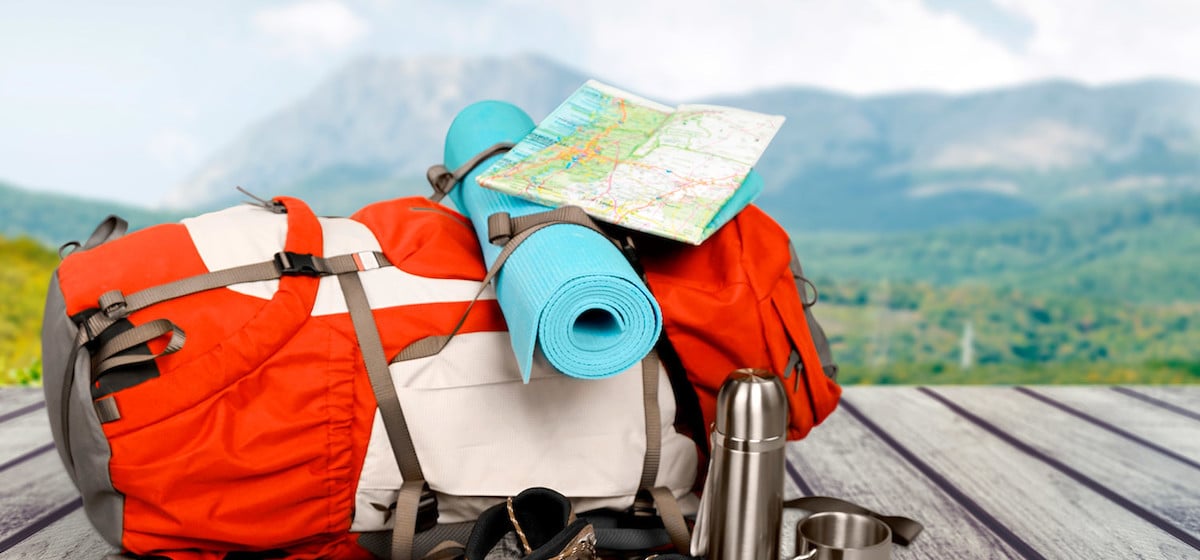
During the epidemic, there has been a considerable increase in the popularity of hiking and backpacking because travellers may discover the beauty of nature while maintaining a social distance. Whether you intend to visit the Grand Canyon or Koh Lanta in Thailand for an immersive experience, you should evaluate whether purchasing travel insurance is wise.
Backpackers traversing remote foreign regions might consider purchasing travel insurance as a financial safety net for unforeseen medical bills. If you don’t buy travel insurance, you’ll have to pay for any medical issues yourself if your health plan doesn’t cover you abroad. Or, if your backpack is lost in transit or stolen, you will lose all of your goods and be required to replace them with your funds.
If you are a hiker going to explore the wilderness in India, your health coverage will likely cover your medical expenses if you become wounded or unwell. However, you’ve spent a significant amount of non-refundable money for a flight, guided tours, or other activities. In that case, you should protect your trip investment against unforeseen circumstances that could derail your plans.
Generally, you do not need international travel insurance if you are not making extensive non-refundable trip deposits or if your health plan covers you at your destination. However, it may be prudent for some to acquire a complete travel insurance policy that includes comprehensive coverage. *
Carefully Consider Medical Cost Coverage
Backpackers are typically fearless explorers who enjoy the thrill of traversing less frequented routes. This is risky if you are travelling Kathmandu Valley in Nepal or the Inca Trail in Peru, for example. For this reason, it is essential to get travel medical insurance if you are backpacking overseas, as your health plan may have limited or no global coverage.
A comprehensive travel insurance policy will include medical expenditure coverage for hospital fees, prescription drugs, and diagnostic and lab tests incurred during a medical emergency. You can discover travel insurance plans with hefty medical coverage, but if you don’t need that much, you can purchase less coverage.
Obtaining a Medevac in a Crisis
A severe injury that requires you to be airlifted to a hospital for treatment is a medical emergency and a financial disaster if you must pay for it yourself. Depending on the region, medical insurance might cost tens to hundreds of thousands of dollars.
Thankfully, the emergency support team of an international travel insurance provider can organise and pay for the medevac transfer up to the policy’s medical evacuation limits. Contemplate high limitations for this coverage if you’ll be backpacking in a distant, difficult-to-reach area. Some plans provide $1 million in coverage for evacuation, while others have lesser limits.
Ensure that you and your travelling companions have the emergency support number for your travel insurance company set into your phones before departure.
Lacking Equipment
Unlike a suitcase full of clothes, your backpack likely contains your tent or shelter, camping equipment, and possibly GPS devices, so it’s important to secure everything with travel insurance.
If you are travelling multiple flights and cannot bring your rucksack on board, you will have to check it as baggage and cross your fingers that it arrives at your final destination. The luggage benefits of medical insurance for travel policy can reimburse you up to your policy maximum if your rucksack is lost, delayed in transit, or stolen during your trip.
You may require an ‘Adventure’ Enhancement
Before you purchase a travel insurance plan, you should determine whether it covers your intended “adventure” activities, if you require an upgrade, or if it is simply not the proper plan for your trip.
Some travel insurance providers provide adventure upgrades with higher limits for medical expenditures and evacuation coverage that do not restrict “extreme” activities such as rafting and mountain climbing.
* Standard T&C Apply
‘Insurance is the subject matter of solicitation. For more details on benefits, exclusions, limitations, terms, and conditions, please read the sales brochure/policy wording carefully before concluding a sale.‘